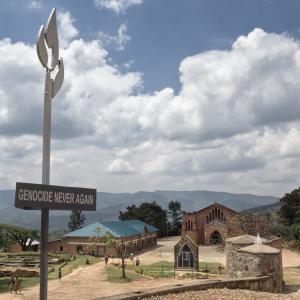
Genocide Never Again
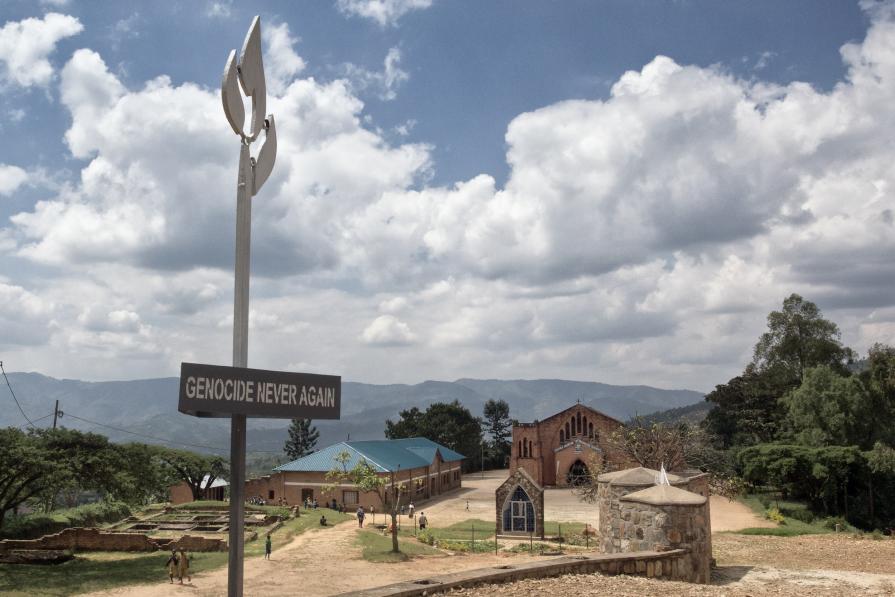
Viewed from the Kibilira Genocide Memorial, the Muhororo Catholic Church was one of the few that assisted in the early days of the genocide terror to protect the Tutsi and provided refuge but the Interahamwe were unstoppable in their frenzy for slaughtering the ‘cockroaches’ as the Tutsi were known. Thousands lost their lives. The genocide memorial, nestled close to the church provides a respite and reminder of lives lost in the church.
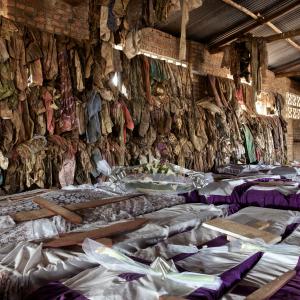
The Ntarama Genocide Church
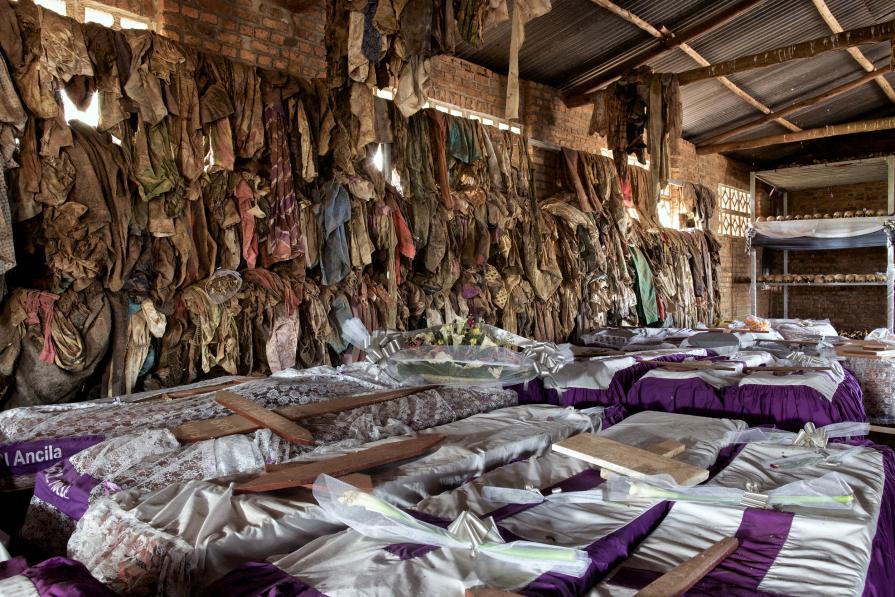
The Ntarama Church is the site where some of the most brutal killings of the 1994 Rwandan Genocide took place. The church at Ntarama was seen as a safe haven by almost 5000 people, many of whom were women and children, who went there for sanctuary. But Ntarama was not a safe place. The victims of the genocide remain there, their bones still strewn with lifeless chaos where they fell over 20 years ago. Their belongings cover the floor; clothes, suitcases, a child’s white sock - the last remnants of a desperate flight for life.
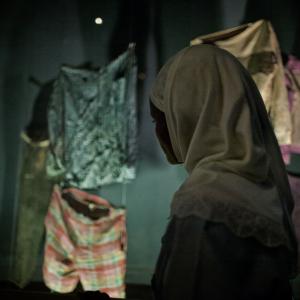
A student gazes on genocide victim's clothing
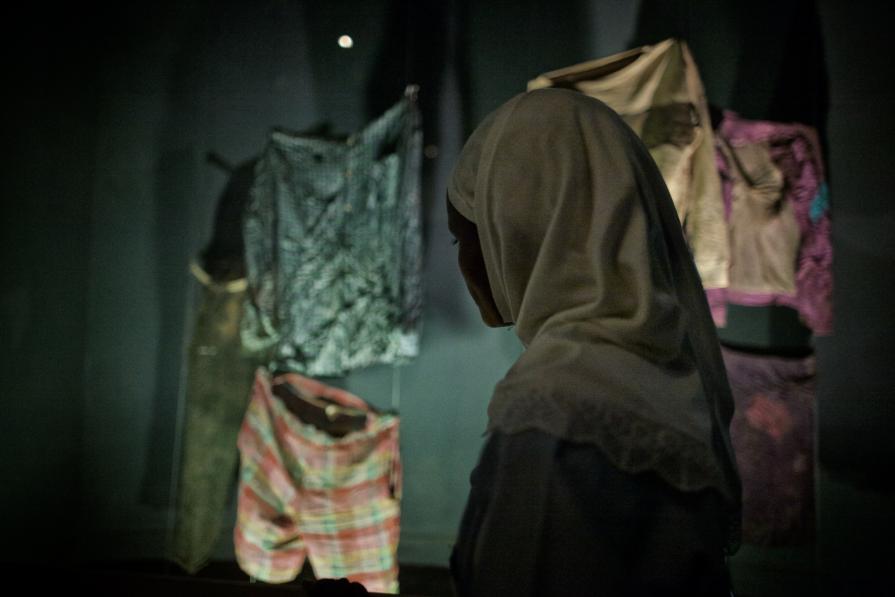
A student from the Ecole Technique Muhazi II Kimironko visiting the Kigali Genocide Memorial gazes on the display of clothing found on the victims during the slaughter. Many victims were stripped of their clothes by the perpetrators as a way of humiliation. They also took the clothes for financial gain and personal use.
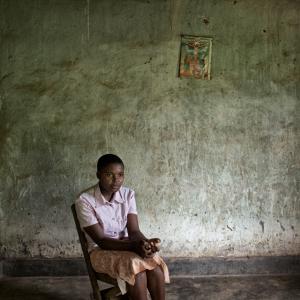
‘Peace is not having problems in your life’ - Goreth Twizerimanaa
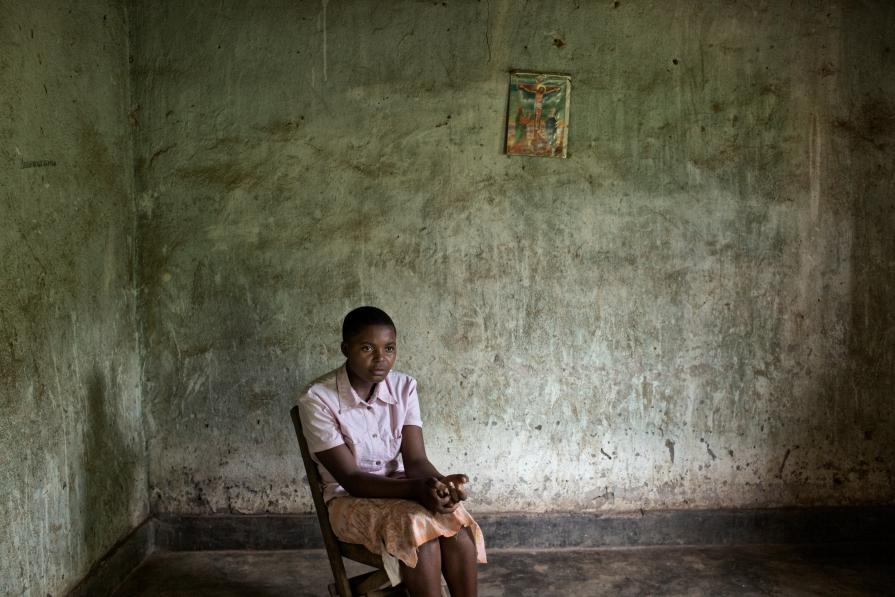
“I was born in jail. My mother was incarcerated for her crimes during the genocide war, which she did not commit. I learned from my grandmother, that my mother was falsely accused. She said the reason she was arrested was because she was temporarily living in a house and was unaware there was a butchered woman stuffed in a suitcase. My mother hadn’t murdered the woman but a man in the community who fancied her had because she had rejected his advances, which made him angry, so he murdered a woman and made up the story to frame my mother. Finally, she had a Gacaca trial and was found innocent. Sadly I was denied my mother’s love for the 12 years she spent incarcerated in jail. The International Alert peace club has been instrumental in teaching me to be community minded, . It taught me the idea of social responsibility, especially caring for orphans and widows from the genocide. For example, we learned how to help widows with their loneliness. My dream is to study medicine and specialize in research to cure AIDS.” ‘Peace is not having problems in your life’ - Goreth Twizerimanaa
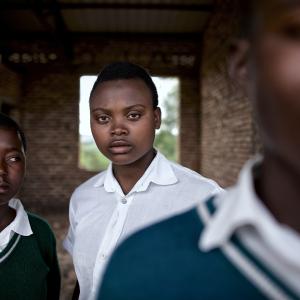
Students at the Groupe Scolaire Cyumba gather outside a new classroom being constructed.

Students at the Groupe Scolaire Cyumba gather outside a new classroom being constructed. They take pride in the quality of their education and facilities available at their rural school. From left to right: Louise Dusabimana : “My ambition is to be a high ranking member of the government in the president’s office; to be a leader and initiate policy programmes to bring clean water and electricity to Rwanda, especially those living in remote regions. Donata Mutangamundu: “The greatest lesson I learned from the peace club was how to forgive. I also learned how to say sorry and to be open with one another, which created trust.” - Everest Shumbusho: “My father organised the slaughter during the genocide. For his crimes he was tried, found guilty and sent to prison after the war. Twice a week I walked 28 kilometers to bring him food. My inspiration is to become a doctor; whenever I see sick people I feel compelled to help them.”
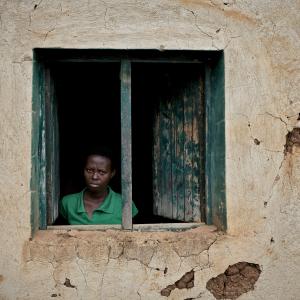
“Peace is not having problems” - Olive Murebwayire
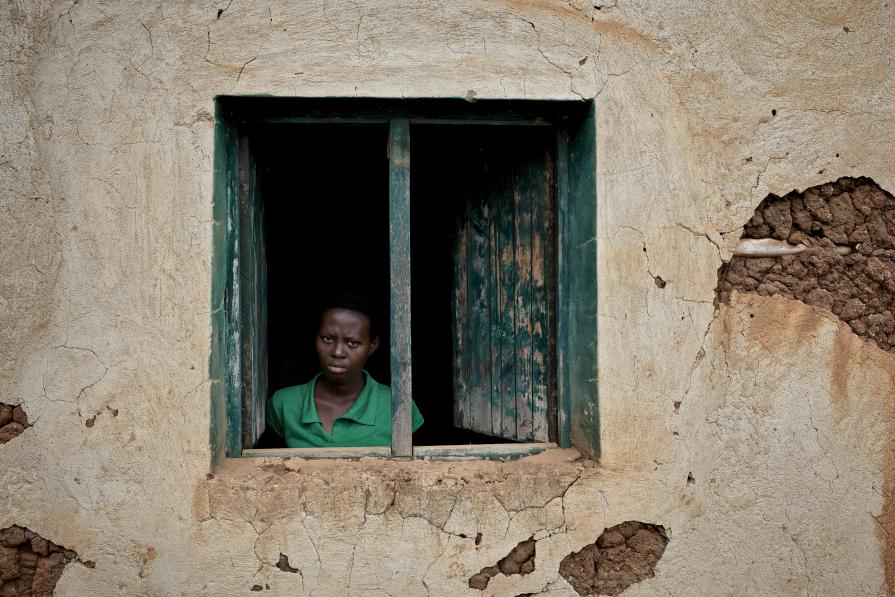
“My knowledge of the genocide is small, my mother said it was because Hutu were killing Tutsi as they wanted their property. I actually do not know what genocide means. Two years ago I was forced to leave school because my mother suffers from depression and acute trauma since she escaped the cutting and killings in the war, and she needs constant care which I have to provide. The trauma she suffers is not just from the aftermath of the genocide, but also the ‘taunts’ from our neighbors. She believes they practice witchcraft to harm her because the man of the household participated in the killing during the genocide. We are always afraid”. “Peace is not having problems” - Olive Murebwayire
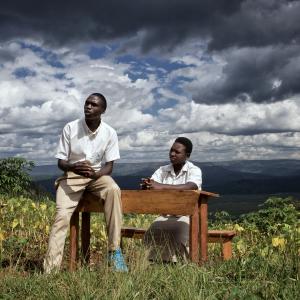
Students discuss their experience of the Rwandan Genocide
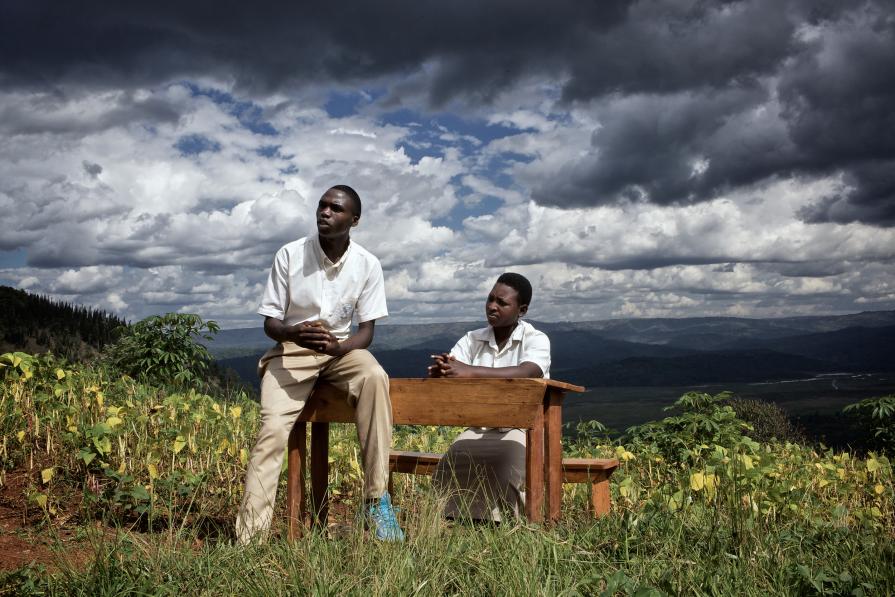
Students attending the Magi Secondary School, discuss their experience of the genocide and the importance of embracing a philosophy of reconciliation and peace, to abandon the hate evident during the genocide of Hutu against Tutsi. They say in unison; “We are ‘Rwandese’ united, not a divided clan. Left to right: Jean-Pierre Ntasoni: “My dream is to live in a Rwanda that has freedom and nurtures humane people who look after one another. I feel the youth of Rwanda has a major role in eradicating the genocide philosophy.” - Alice Ukwibishaka: “From a very early age my family warned me never to speak to those neighbours who turned on us and committed unspeakable atrocities of terror. They told me even though the genocide was over, Hutu still harboured hateful feelings, could rise up again and create another genocide.The lesson I have learned form the genocide is since the youth played such a pivotal role in destroying our country, our generation must play an equal role in rebuilding it.”
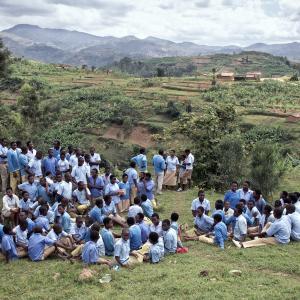
‘Peace means respect’

The Kigali School peace club in Nyange, a remote region in Rwanda was formed less than a year ago by International Alert, boasts more than 50 members. Gathered together on the rolling hills of the school campus, the students dialogue about the causes of the genocide, and the importance of creating a mind-set of being a united nation, not a divided clan that fueled the hatred between Hutu and Tutsi. There were many definitions of peace discussed, but a universal theme stated: ‘Peace means respect’
The AMAHORO Generation
spirits, they became a ferocious barbaric species. They were the
Interahamwe, the infamous killers of the 1994 Rwandan
Genocide against the Tutsi. They were also the youth of the
nation. Two decades on victim and perpetrator are still coping
with the aftermath of the 100 days the world chose to ignore.
Born during the genocide era, Rwandan’s youth speak of their
aspirations, their hope for peace in the aftermath of a brutal war
that fractured their nation. They are the generation that wants to
be acknowledged as Rwandese, united in purpose, eliminating
historical tribal labels of Hutu and Tutsi. They want their legacy to
be known as the Amahoro generation, the peace brokers; where the
youth of their parent’s generation were the brutal warriors. They
believe hatred corrodes morality.
The youth have come together, united in purpose – much of their
commitment to reconciliation is rooted in the idea that without
peace, there is no future. Peace is everything, the steel platform to
construct prosperity and harmony.
Predictably after many conflicts, the prejudice, deep scars, and
trauma from the war are passed on from one generation to another.
As such, the horrors of the past risk contaminating yet more lives
in the future. International Alert, the peace building organization
has created peace clubs for schools to benefit young people affected
by the consequences of the genocide and their quest to live in a
peaceful society as united Rwandans. Here the students debate the
factors, which led Rwandans to genocide like discrimination, and
rumours, and its consequences of ethnic hatred and stigmatisation.
The club’s programme has been a significant factor in reducing
tensions in communities allowing families to live side by side in
peace. Lessons learned are inspirational as many students carry
the messages they have learned into their local communities and
created replicas of their clubs. Supporting the younger generation
of Rwandans to overcome the burden of history and build a future
free of violence is one of the primary aims of the peace building
process.
Amahoro, means peace; it is the youth’s destiny.
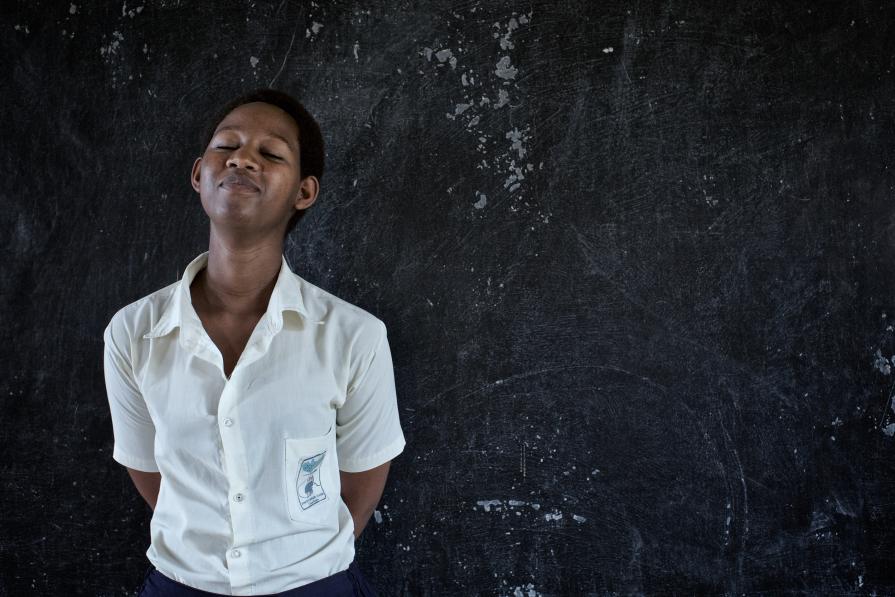













Comments 0
Say something